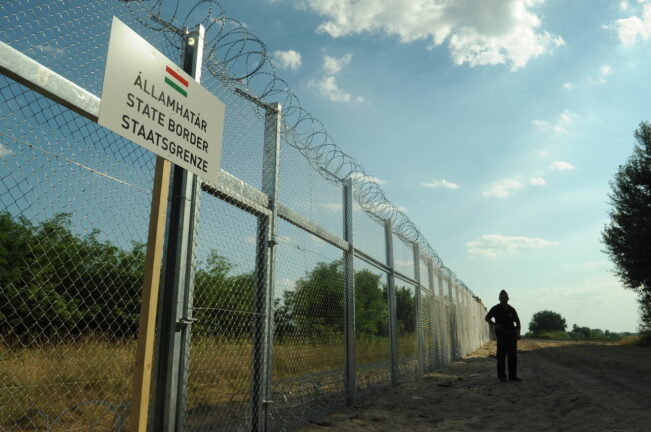The European Union Agency for Fundamental Rights has released a new position paper titled “Countering the instrumentalisation of migrants and refugees and respecting fundamental rights”. The document examines how certain states – both within and beyond the EU – are using migrants as political or geopolitical tools, often accompanied by increasing militarisation at the EU’s external borders.
The use of migration flows by third countries to exert political pressure on EU member states, for example by orchestrating mass border crossings: this is, what European Union Agency for Fundamental Rights (FRA) defines as instrumentalization nowadays. In response, some EU countries have reinforced physical barriers and engaged with military or defence actors. These actions, however, pose significant risks to fundamental rights including the right to asylum, personal liberty, and the prohibition of collective expulsion.
Reinforcing physical barriers at EU’s external border and engaging with military or defence actors pose significant risks to fundamental rights including the right to asylum. – FRA report
The Agency in its paper highlights a growing trend of border surveillance through dual-use defence technologies – systems originally designed for military purposes but now applied to border control, such as Eurosur and shared information systems. It also points to increasing operational cooperation with military actors, which could lead to the use of force without adequate legal safeguards. The construction and fortification of physical barriers have also restricted access to asylum without ensuring proper legal remedies.
Abuse along the EU’s border keeps rising
FRA urges a targeted approach that holds accountable the state and non-state actors facilitating the instrumentalisation of migrants, rather than punishing vulnerable individuals. It calls for border operations to fully comply with fundamental rights, including strict limits on the use of force, guaranteed access to asylum, and special protections for children and vulnerable groups.
Furthermore, any cooperation with defence entities must be contingent on legal safeguards, independent monitoring, and adherence to EU and international law.
The publication comes at a time when allegations of abuse along the EU’s borders are mounting. In its July 2024 report, the FRA had already denounced the lack of effective investigations into serious human rights violations in countries such as Greece, Croatia, Hungary, and Malta. That included reported abuses, unexplained deaths, and incomplete investigative procedures. The report also presented a ten-point plan to improve investigator training, evidence collection, and victim protection.
You might be interested
In addition, the FRA’s 2024 report on “Intolerance and Discrimination” noted a rise in hostile sentiments across Europe towards migrants, Muslims, people of African descent, and Roma communities.
Migration as a political tool
FRA warns that migration management is at risk of becoming a political tool, with the militarisation of borders leading to potential violations of fundamental rights. The agency stresses the need for a balanced approach: targeted sanctions against responsible actors, rights-based controls, and legally bound cooperation. It cautions that some anti-instrumentalisation strategies may end up undermining the very rights they aim to defend. Deterrence and military intervention, if not grounded in strong legal safeguards, can be counterproductive.











